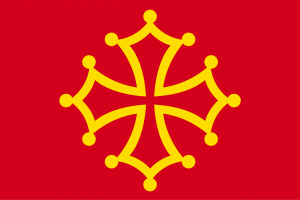Language/Occitan-post-1500/Grammar/Plurals
Hi Occitan (post 1500) learners! 😊
In this lesson, we will focus on plurals in Occitan (post 1500) grammar. As a language teacher of Occitan (post 1500) for 20 years, it is always a pleasure to share with you interesting cultural information and facts that will help you better understand the language. Remember, learning Occitan (post 1500) requires practice, so don't hesitate to find native speakers and ask them any questions. Let's get started!
Plural Nouns[edit | edit source]
In Occitan (post 1500), a noun is considered plural when it refers to more than one person, animal, thing, or concept. There are various plural forms in Occitan (post 1500) grammar, and mastering them is essential to communicate effectively.
To form the plural of a noun in Occitan (post 1500), several rules apply. The most common rule is to add -s to the singular noun, such as in the following examples:
| Occitan (post 1500) | Pronunciation | English |
|---|---|---|
| un chen | [œ̃ ʃẽ] | a dog |
| dos chens | [duʃʃẽs] | two dogs |
| un ostal | [œ̃ nusˈta] | a house |
| quatre ostals | [ˈkatɾe uʃˈtaːls] | four houses |
However, there are exceptions to this rule, like silent and accented vowels, which impact the formation of the plural. Therefore, it is important to memorize the different plural forms of nouns to avoid grammatical errors.
Plural Adjectives[edit | edit source]
Like nouns, adjectives in Occitan (post 1500) are also pluralized when referring to more than one thing or concept. To form the plural of an adjective, you typically add -s to the singular form, like in the following example:
| Occitan (post 1500) | Pronunciation | English |
|---|---|---|
| un taulic | [œ̃n toˈlik] | a small table |
| doas taulicas | [ˈdu.aʃ toliˈkas] | two small tables |
However, there are some exceptions to this rule. For example, adjectives ending in -s, -x, or -z do not change in the plural form, like in the following example:
| Occitan (post 1500) | Pronunciation | English |
|---|---|---|
| un gascon | [œ̃ŋasˈku] | a Gascon person |
| tres gascon | [ˈtɾeʃ gasˈku] | three Gascon persons |
Plural Pronouns[edit | edit source]
Pronouns in Occitan (post 1500) change in the plural form depending on their grammatical function. The following table illustrates the forms of pronouns in Occitan (post 1500) grammar:
| Person | Singular | Plural |
|---|---|---|
| First Person (I) | jo | nos |
| Second Person (you) | tu | vos |
| Third Person (he/she/it) | ele/lui | eles/los |
For example:
- Person 1: Ai perdut la clau. (I lost the key.)
- Person 2: Nos l'avem retrobada. (We found it.)
Plural Verbs[edit | edit source]
In Occitan (post 1500), verbs change in the plural form depending on the subject of the sentence. When the subject is in the plural form, the verb agrees with it in terms of conjugation.
For example:
- Jo baila. (I dance.)
- Vos bailatz. (You all dance.)
Conclusion[edit | edit source]
Remember, mastering plurals in Occitan (post 1500) requires practice, patience, and dedication. Don't hesitate to use Polyglot Club as a resource and find native speakers to communicate and improve your skills. To improve your overall Occitan (post 1500) Grammar, you can also refer to the following sources:
Sources[edit | edit source]
Congratulations on finishing this lesson! Explore these related pages to keep learning: Definite Articles in Occitan, Say Hello and Greetings in Occitan (post 1500), Conditional Tense & How to Use Have.
➡ If you have any questions, please ask them in the comments section below.
➡ Feel free to edit this wiki page if you think it can be improved. 😎

